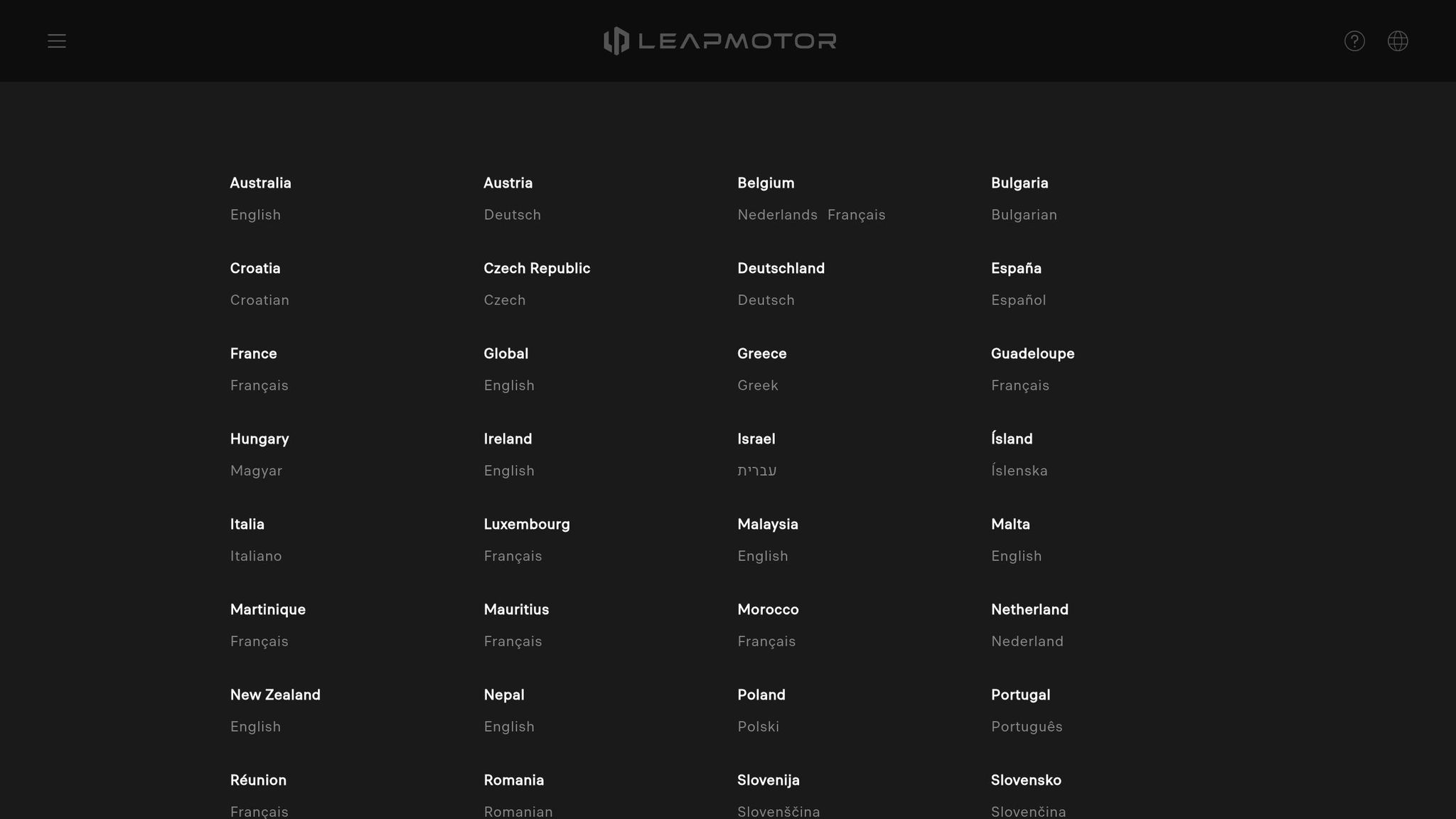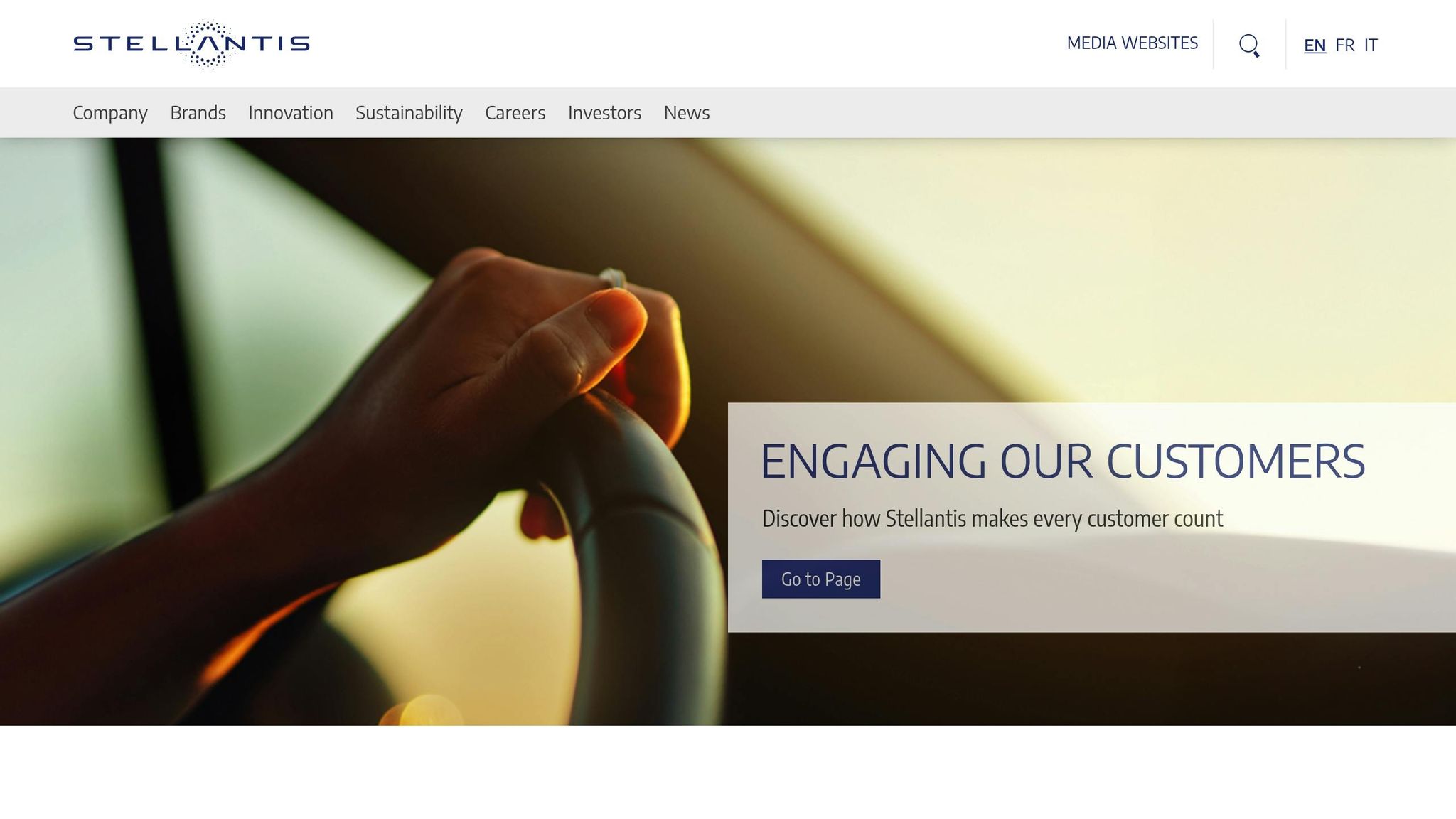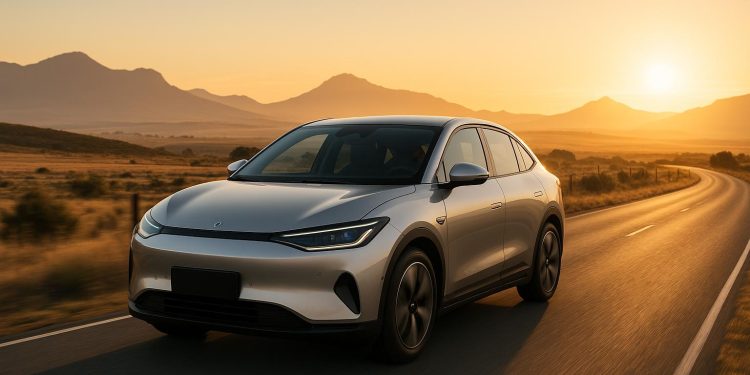Leapmotor, a Chinese automaker, has entered South Africa with its C10 REEV (Range-Extended Electric Vehicle). This vehicle addresses common EV concerns like limited charging infrastructure and range anxiety, combining electric driving with a petrol generator for extended range. The C10 REEV offers up to 715 miles of combined range and supports fast charging, making it suitable for both urban and rural drivers. Starting at $47,500, Leapmotor aims to make EVs more accessible, with plans for local assembly to reduce costs further. Partnering with Stellantis, Leapmotor is positioned to reshape South Africa’s EV landscape.
Leapmotor Models Coming to South Africa

Leapmotor C10 REEV Specifications
The Leapmotor C10 REEV is the centerpiece of Leapmotor’s entry into South Africa, brought through the Leapmotor International and Stellantis joint venture. This model is a full battery electric vehicle equipped with range-extending technology. It officially launched on October 15, 2025, following its showcase at SA Auto Week (October 1–3, 2025).
In terms of operation, the C10 REEV runs primarily in electric mode. A 1.5-liter petrol engine acts solely as a generator, meaning it doesn’t directly power the wheels. The vehicle provides a pure electric range of around 90 miles (145 km) and an impressive combined range of approximately 603 miles (970 km) when the generator is in use. With its rear electric drive unit, the C10 REEV ensures the smooth, quiet performance that drivers expect from an electric vehicle. These features mark a significant step for Leapmotor as it establishes itself in the South African market.
Additional Models and Launch Timeline
Following the introduction of the C10 REEV, Leapmotor plans to release more models at select dealerships. This phased approach aims to enhance service accessibility and build customer trust.
Key Features That Set Leapmotor Apart
What makes the C10 REEV stand out is its range-extending technology. This feature combines the benefits of a fully electric vehicle with the practicality of hybrid capabilities, offering a unique solution for South African drivers.
Leapmotor Technology and Features
LEAP3.0 Architecture and CTC Technology
At the heart of Leapmotor’s electric vehicle lineup lies the LEAP3.0 architecture. While details about its Cell-to-Chassis (CTC) technology remain sparse, this platform is the backbone of the C10 REEV, supporting its advanced battery and powertrain systems. The C10 REEV is equipped with a 28.4 kWh lithium-iron-phosphate battery, a type known for its durability and thermal stability – key factors for long-term reliability and safety. This solid technological framework plays a crucial role in delivering the impressive performance outlined below.
Driving Range and Charging Systems
The C10 REEV tackles range anxiety head-on with its dual-power setup. Its electric motor generates 170 kW of power and 320 Nm of torque, offering quick acceleration and responsive handling. On a full charge and fuel tank, the vehicle achieves a total range of 970 to 1,150 km, with an electric-only range reaching up to 170 km. For added convenience, it supports DC fast charging, allowing the battery to go from 30% to 80% in just 18 minutes. The vehicle’s 1.5-liter petrol engine functions exclusively as a generator, ensuring a seamless electric driving experience while addressing potential power supply limitations.
Safety and Driver Assistance Features
The C10 REEV’s innovative powertrain isn’t just about performance – it also boosts driver confidence. By delivering a fully electric driving experience, the REEV technology addresses common concerns like range limitations and "autonomy anxiety". Additionally, the streamlined design of its electric drivetrain, with fewer moving parts compared to traditional engines, can lead to reduced maintenance needs, making ownership more convenient and cost-effective. This combination of cutting-edge technology and thoughtful design ensures a safer and more enjoyable driving experience.
Pricing and Market Position
Vehicle Pricing and Cost Comparison
Leapmotor entered the South African market in mid-October 2025 with its C10 REEV, offering two trims aimed at the D-segment SUV category. The Style variant starts at $47,500 (R759,900), while the Design trim is priced at $50,000 (R799,900). Both models come with a five-year/100,000-kilometer warranty and service plan[2,4].
This pricing strategy positions Leapmotor against established plug-in hybrid SUVs from brands like Chery and Haval. While initial feedback suggested the launch prices were higher than anticipated, the C10 REEV remains a strong contender due to its advanced range-extended electric vehicle (REEV) technology and comprehensive features. Plans for local assembly are expected to further improve affordability, enhancing its competitive edge.
Local Assembly and Cost Reduction
South Africa’s push to expand its electric vehicle industry presents Leapmotor with opportunities to cut costs through local assembly partnerships. The government has introduced attractive incentives, including a 150% tax deduction for qualifying EV production investments starting in March 2026. Additionally, $62.5 million (R1 billion) has been allocated to scale up local EV production by 2035, with a focus on increasing local content and EV battery component manufacturing.
An example of the benefits of local assembly comes from Toyota South Africa Motors, which produces the Corolla Cross Hybrid domestically. This strategy has made hybrid technology more accessible, leading to impressive sales of 13,604 hybrid units in 2024.
"The local production of the Corolla Cross Hybrid has made hybrid technology more affordable and accessible to South African buyers, and growing environmental awareness has inspired consumers to seek more sustainable options."
- Refilwe Ramatlhodi-Ndhlovu, Manager of Corporate Communications, Toyota South Africa Motors
Industry experts estimate that local assembly can improve margins by around 4% compared to importing fully built vehicles. For Leapmotor, this could translate into lower prices for customers or higher profit margins to invest in dealer networks and customer service, strengthening its long-term position in the market.
Target Customers and Market Appeal
Leapmotor’s pricing strategy and plans for localized production cater to a variety of customer groups. The C10 REEV is designed for both urban drivers and rural operators who need reliable long-distance travel solutions. By addressing concerns like range anxiety and limited charging infrastructure – common challenges in South Africa’s vast terrain – it appeals to farmers and logistics operators seeking affordable and sustainable transport options[1,2,3].
Urban families are another key audience, drawn to the C10 REEV as a premium yet practical family SUV. Its electric capabilities suit daily commutes, while the extended range ensures peace of mind for weekend trips and vacations. By bridging the gap between traditional hybrids and fully electric vehicles, Leapmotor appeals to early adopters eager to embrace electric mobility without sacrificing convenience in regions where charging infrastructure is still developing.
sbb-itb-09752ea
Infrastructure and Consumer Benefits
Charging Network and REEV Benefits
South Africa’s charging infrastructure for electric vehicles is still in its infancy, and this creates a unique challenge for EV adoption. That’s where Leapmotor’s range-extended electric vehicle (REEV) technology steps in. The C10 REEV is designed to address the limited charging network by combining electric driving with a backup petrol generator. This dual approach eliminates range anxiety, one of the biggest hurdles for EV users.
The REEV system offers a practical workaround for South Africa’s energy constraints and sparse charging options, ensuring dependable performance in both urban hubs and rural areas. Unlike fully electric vehicles, range-extended systems offer the benefits of electric mobility while maintaining the long-distance reliability of petrol power.
“By combining electric driving with built-in charging flexibility, the technology ensures reliability across both urban and rural conditions, while supporting the country’s Just Energy Transition. With rising fuel costs and the need for affordable, sustainable mobility, Leapmotor positions REEV as a pragmatic response to South Africa’s evolving transport landscape.”
– Stellantis South Africa
This innovative approach aligns with Leapmotor’s commitment to environmental progress while ensuring everyday practicality for drivers.
Environmental Impact and Sustainability
Leapmotor is making a strong case for supporting South Africa’s “Just Energy Transition” by introducing affordable, sustainable mobility solutions that reduce dependence on fossil fuels. The C10 REEV combines the environmental benefits of electric commuting with the practicality of overcoming the country’s limited charging infrastructure. For most daily driving needs, which typically fall within the electric range, the vehicle operates in a zero-emission mode. This not only improves urban air quality but also reduces carbon emissions.
By bridging the gap between traditional combustion engines and fully electric vehicles, the range-extended system helps accelerate the acceptance of EVs in markets like South Africa. As the country continues to enhance its energy grid and integrate more renewable energy sources, vehicles like the C10 can play a pivotal role in advancing cleaner transportation. Stellantis has set ambitious goals for the region, aiming for 35% of its one million vehicles sold in the Middle East and Africa by 2030 to be electric.
“South Africa is a key market for Stellantis, and the launch of Leapmotor marks an important step in offering innovative new energy vehicle options through product, innovation, and partnerships.”
– Mike Whitfield, Managing Director, Stellantis South Africa
This combination of environmental and practical benefits positions the C10 REEV as a forward-thinking option for South African drivers.
Daily Driving Benefits
For everyday use, the C10 REEV offers a range of practical perks. Its operating costs are highly competitive, making it an economical choice for longer trips. Thanks to its extended range capability, drivers can cover significant distances without frequent stops to recharge. The integrated petrol generator ensures the battery remains charged, delivering consistent electric performance throughout the journey. Whether it’s commuting in the city or embarking on a road trip, the C10 REEV delivers reliability and convenience.
Leapmotor C10 REEV: Range Extender Electric Vehicle | New Brand, New Car by Stellantis SA | Review

Conclusion: Leapmotor’s Impact on South Africa’s EV Market
Leapmotor’s arrival marks a turning point for South Africa’s electric vehicle (EV) market, introducing the country’s first Range-Extended Electric Vehicle (REEV) in over a decade. This move directly tackles the region’s charging and energy challenges, offering a practical solution for drivers navigating an evolving infrastructure.
The C10 REEV stands out with its unique design. Its combustion engine operates solely as a generator, ensuring extended range without compromising the core electric driving experience. The vehicle delivers an impressive combined range of approximately 603 to 715 miles (970 to 1,150 km) on a full charge and fuel tank, while its electric-only range reaches up to about 105 miles (170 km).
What sets Leapmotor apart is its blend of advanced technology and a thoughtful market-entry strategy. By partnering with Stellantis and focusing on local assembly, the company strengthens its foothold in the region. This approach not only enhances service accessibility but could also help lower ownership costs, making EVs more appealing to a broader audience.
As South Africa works to expand its charging infrastructure and renewable energy capabilities, the C10 REEV offers a practical stepping stone into the world of electric mobility. It bridges the gap between traditional combustion vehicles and a more sustainable future, providing a solution that aligns with local needs and realities.
Leapmotor’s entry is poised to influence the broader EV ecosystem in South Africa. Stellantis has ambitious goals, aiming for 35% of its vehicle sales in the Middle East and Africa to be electric by 2030. The success of Leapmotor’s models could spark policy discussions around REEV incentives and infrastructure development, potentially accelerating the adoption of electric mobility. By aligning cutting-edge technology with the specific needs of the South African market, Leapmotor plays a key role in advancing cleaner, more efficient transportation options.
For a market that has been cautiously observing the global EV shift, Leapmotor offers a practical and forward-thinking path. It respects local challenges while delivering on the promise of a cleaner, more efficient way to travel.
FAQs
How does Leapmotor’s range-extending technology benefit drivers in South Africa?
Leapmotor’s range-extending technology, showcased in models like the C10 REEV, delivers an impressive pure electric range of 145 km. Paired with its 1.5-liter gas engine, which functions as a generator, the vehicle achieves a total range of up to 970 km. This hybrid setup combines the benefits of electric driving with the practicality of extended travel capabilities.
For South African drivers, this translates to fewer worries about charging stations, especially in remote or rural areas. It offers the convenience of long-distance travel while maintaining an eco-conscious approach – perfect for navigating the country’s varied landscapes and driving demands.
What impact does the Leapmotor and Stellantis partnership have on South Africa’s EV market?
The collaboration between Leapmotor and Stellantis, under their joint venture Leapmotor International, is poised to make a notable impact on South Africa’s electric vehicle (EV) market. Stellantis brings its well-established infrastructure and broad distribution network to the table, giving Leapmotor a strong foundation to introduce its EVs effectively in the region.
With Stellantis’s global experience and commitment to high-quality standards, Leapmotor’s EVs are set to deliver the performance and reliability that consumers expect. Holding a 51% stake in the joint venture, Stellantis positions Leapmotor to compete head-to-head with established brands, addressing key local priorities such as affordability and compatibility with existing infrastructure.
What incentives exist for assembling electric vehicles locally in South Africa, and how could these impact Leapmotor’s pricing strategy?
South Africa has introduced several incentives to boost the local assembly of electric vehicles (EVs). These include tax breaks, reduced import duties on EV components, and subsidies aimed at supporting manufacturers. The goal is clear: attract investment in the EV industry and make these vehicles more budget-friendly for consumers.
For Leapmotor, tapping into these benefits could significantly cut production costs. This would allow the company to price its vehicles more competitively in the South African market. By doing so, Leapmotor could make its models more accessible to a wider audience, aligning with its mission to provide affordable, eco-friendly transportation options that meet the growing local demand.
Related Blog Posts
- Leapmotor vs BYD: Can the Newcomer Win South Africa’s EV Battle?
- Leapmotor EVs Land in South Africa: Affordable Electric Cars Are Finally Here ⚡🇿🇦
- Inside Leapmotor’s South African Launch – What It Means for Local EV Buyers
- Stellantis Brings Leapmotor to SA: A Game-Changer for Electric Mobility





